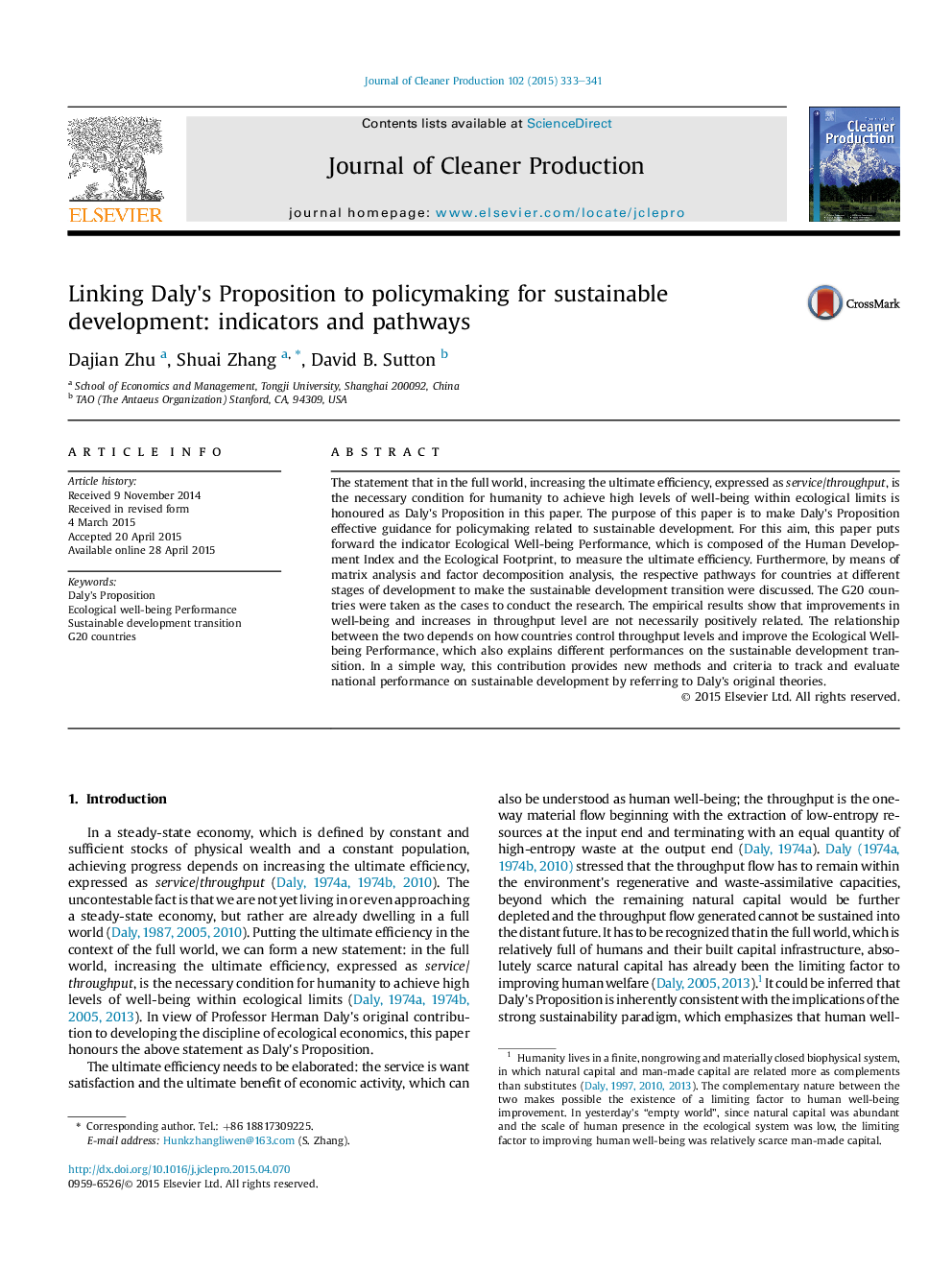| Article ID | Journal | Published Year | Pages | File Type |
|---|---|---|---|---|
| 8103823 | Journal of Cleaner Production | 2015 | 9 Pages |
Abstract
The statement that in the full world, increasing the ultimate efficiency, expressed as service/throughput, is the necessary condition for humanity to achieve high levels of well-being within ecological limits is honoured as Daly's Proposition in this paper. The purpose of this paper is to make Daly's Proposition effective guidance for policymaking related to sustainable development. For this aim, this paper puts forward the indicator Ecological Well-being Performance, which is composed of the Human Development Index and the Ecological Footprint, to measure the ultimate efficiency. Furthermore, by means of matrix analysis and factor decomposition analysis, the respective pathways for countries at different stages of development to make the sustainable development transition were discussed. The G20 countries were taken as the cases to conduct the research. The empirical results show that improvements in well-being and increases in throughput level are not necessarily positively related. The relationship between the two depends on how countries control throughput levels and improve the Ecological Well-being Performance, which also explains different performances on the sustainable development transition. In a simple way, this contribution provides new methods and criteria to track and evaluate national performance on sustainable development by referring to Daly's original theories.
Related Topics
Physical Sciences and Engineering
Energy
Renewable Energy, Sustainability and the Environment
Authors
Dajian Zhu, Shuai Zhang, David B. Sutton,
